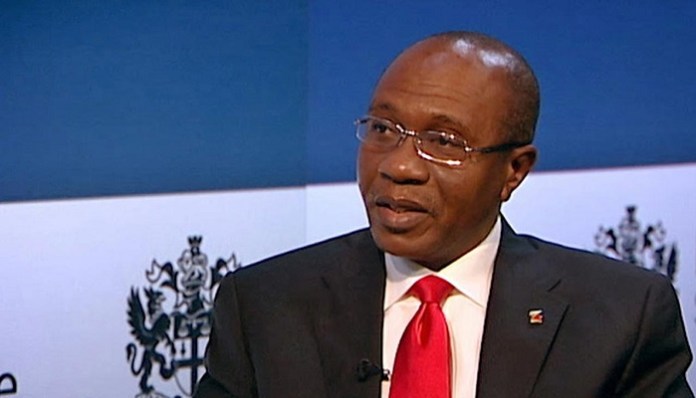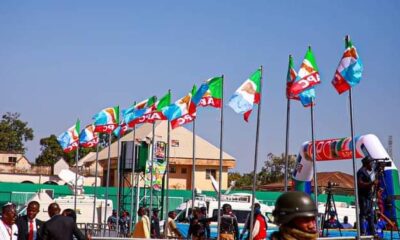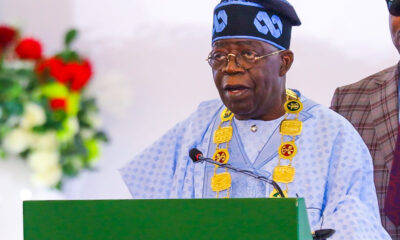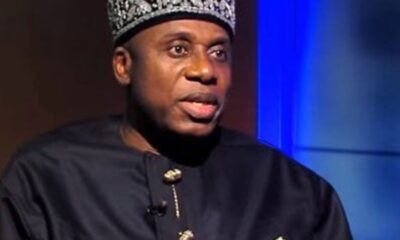NEWS
Experts predict recession as GDP growth falls to 2.01%

On Monday, notable financial and economic experts warned that weak fundamentals currently being exhibited by the Nigerian economy are putting the country’s exit from recession under threat.
Nigeria’s economy exited recession in 2017 after suffering contraction for five consecutive quarters.
But the National Bureau of Statistics, in its Gross Domestic Product report released on Monday, said the economy recorded a decline in output in real terms in the first quarter of 2019.
The NBS said the nation’s GDP growth rate fell to 2.01 per cent in the first quarter of 2019 from 2.38 per cent in the fourth quarter of last year.
It said when compared to the first quarter of 2018, which recorded real GDP growth rate of 1.89 per cent, the first-quarter 2019 growth rate represented an increase of 0.12 percentage points.
The NBS said, “It is worth noting that general elections were held across the country during the first quarter of 2019 and this may have reflected in the strongest first-quarter performance observed since 2015.
“Aggregate GDP stood at N31.79tn in nominal terms. This aggregate [GDP] was higher than in the first quarter of 2018 which recorded N28.44tn, representing a year-on-year nominal growth rate of 11.80 per cent. The aggregate [GDP] was, however, lower than in the preceding quarter of N35.23tn, by -9.75 per cent.”
The NBS put the oil sector’s GDP growth in the first quarter at -2.40 per cent, indicating a decrease of 16.43 percentage points relative to the rate recorded in the corresponding quarter of 2018.
It said the non-oil sector grew by 2.47 per cent in real terms during the first quarter.
This was 1.72 percentage points higher when compared to the rate recorded in the same quarter of 2018 but 0.23 percentage points lower than the fourth quarter 2018 figure.
The bureau said, “During the quarter, the sector was driven mainly by Information and Communication Technology.
“Other drivers were agriculture, transportation and storage, trade and construction. In real terms, the non-oil sector contributed 90.86 per cent to the nation’s GDP, higher than 90.45 per cent recorded in the first quarter of 2018 but lower than the 92.94 per cent for fourth quarter of 2018.”
But reacting to the report, economists, who spoke to our correspondents in separate telephone interviews, warned that the economy had started showing signs of weakness.
The Registrar, Institute of Finance and Control of Nigeria, Mr Godwin Eohoi, noted that the economic slowdown in the first quarter emanated from the oil sector with strong linkages to employment and growth.
He argued that the late passage of the 2019 budget, weakening demand and consumer spending, rising contractor debt, and low minimum wage were some of the risks to output growth.
Others, according to him, are the continued security challenges in the North-East and North-Central zones and growing level of sovereign debt.
According to him, except the Federal Government comes up with innovative measures to stimulate aggregate demand, the economy may slip into another recession by next year.
Eohoi said, “We have just increased minimum wage now and what will follow is an upward adjustment in the prices of goods and services.
“Once this happens, the purchasing power of the people will drop. If nothing innovative is done to stimulate the economy, then you will see that the level of economic productivity will start declining.
“So, what I will suggest is that the government should increase the minimum wage and then implement policies that would stimulate output, particularly in the area of agriculture.”
Eohoi said the planned increase in Value Added Tax should be suspended while banks should be encouraged to lend to small businesses in employment-creating and growth-stimulating sectors of the economy.
A developmental economist, Odilim Enwangbara, said the economy might return to recession as a result of unproductive spending.
He said, “The economy will eventually return to recession because of massive unproductive general spending.
“Many foreign investors have quietly left Nigeria, relocating to Ghana where necessary, while many local investors are on the sidelines out of fear of the prolonged political instability and the growing high level of insecurity, particularly kidnapping, causing harsh business environment.”
According to him, there is a continuous liquidity crunch because of the Central Bank of Nigeria’s efforts to artificially keep the naira strong.































